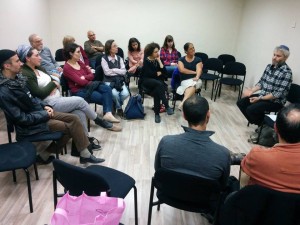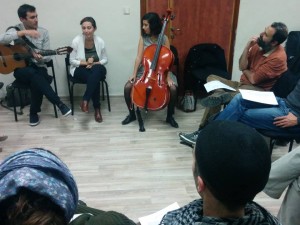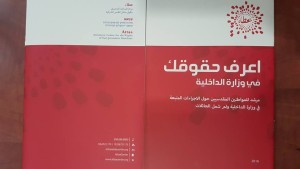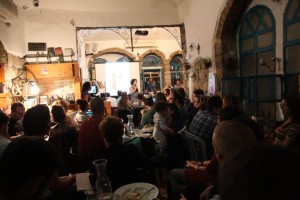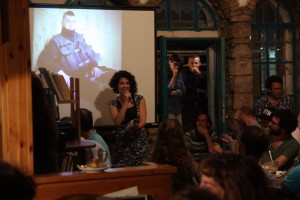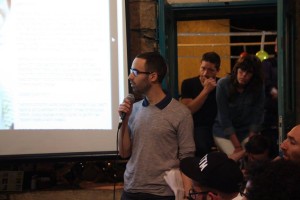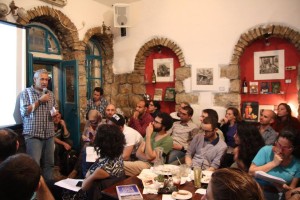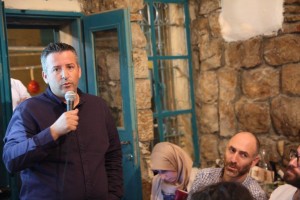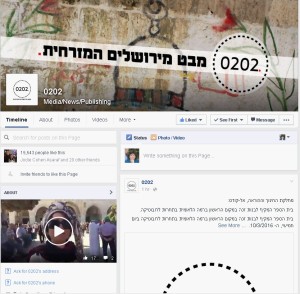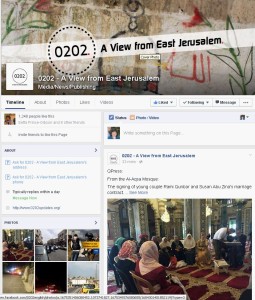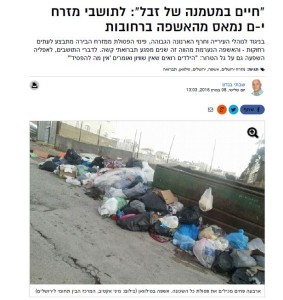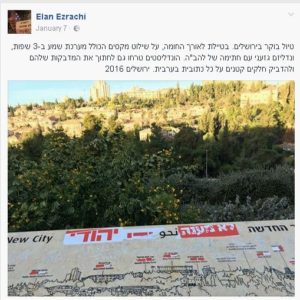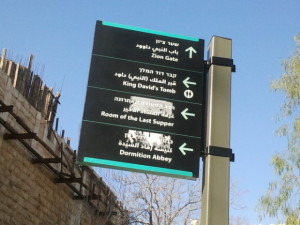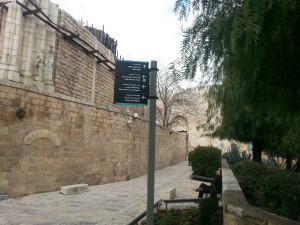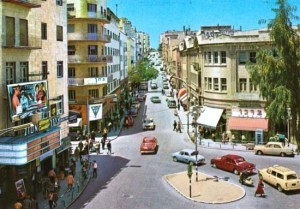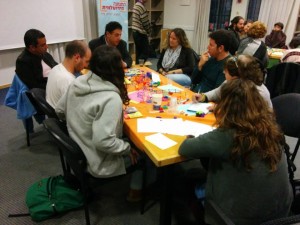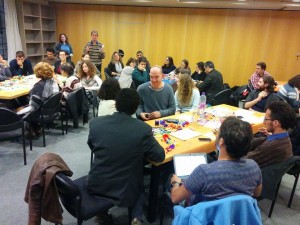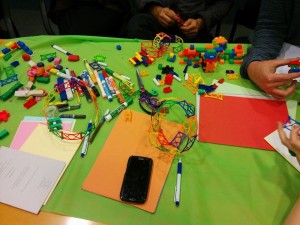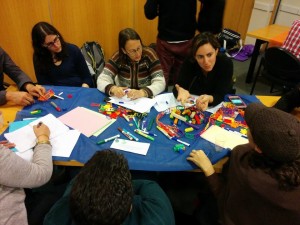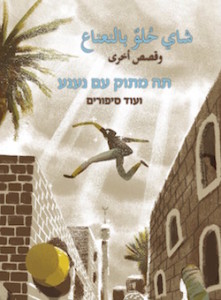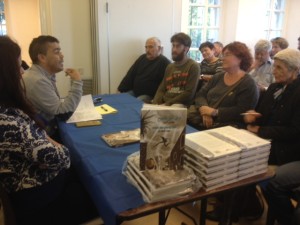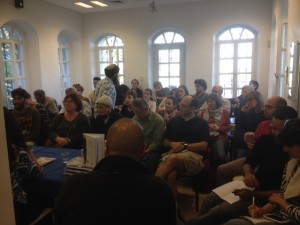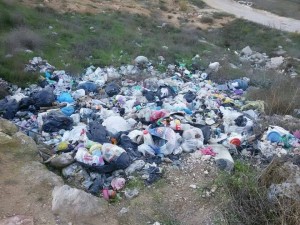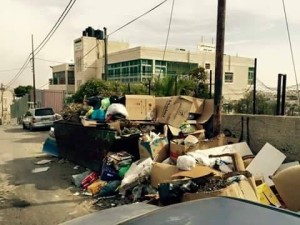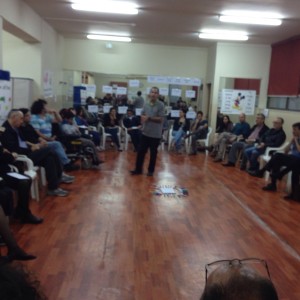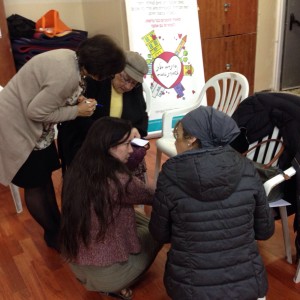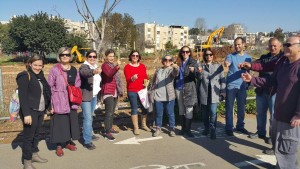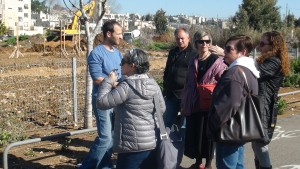Katamonim Tolerance Team – A Neighborhood Meets Itself
The burned bridge between the word ‘Salaam’ and the word ‘Shalom’
Between the word ‘Kalib’ and the word ‘Lev’ (heart)
Between the word ‘Hoob’ and the word ‘Ahava’ (love)
Between the word ‘Urshalem’ and ‘Yerushalayim’
Between the word ‘Mai’ and the word ‘Mayim’ (water)
Between the word ‘Ivri’ (Hebrew) and the word ‘Aravi’ (Arabic)
Between the word ‘Wachad’ and the word ‘Echad’ (one)
Between the word ‘Allah’ and the word ‘Elohim’
This is part of a poem by Yosef Ozer, which was composed by the Ecout ensemble, which played at the first meeting of the Katamonim-Rasco Tolerance Team – A Neighborhood Meets Itself which took place on March 10. The Katamonim-Rasco team joins a growing network of Neighborhood Tolerance Teams, part of an overall effort to promote tolerance in Jerusalem, that we’ve been leading since the summer of 2014, thanks to the support of the UJA-Federation of New York and the Jerusalem Foundation.
This first meeting was entitled “Katamonim Songs, ” and featured the poet Almog Behar and the Ecout ensemble. The ensemble performed songs from its “Katamonim Songs” E.P. that tells the history, the experience and the life stories in the Katamonim neighborhood in Jerusalem. Later on they spoke with Almog Behar and Inbal Jumpshid on the album’s songs and the neighborhood, identity and political connections.
Michal Shilor, our JICC coordinator, summed up the meeting:
We listened, we experienced, we laughed and were excited by the close-knit music, song and discussion with neighborhood residents on accepting the ‘other’ in the neighborhood, on nostalgia, on recognizing the humanity of people regardless of their association with a particular group. Step by step, we’re making cracks in the walls and bringing the hearts of Jerusalemites together.
Here’s the link to a video taken at the meeting:

